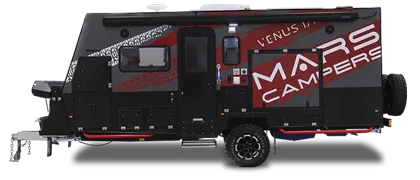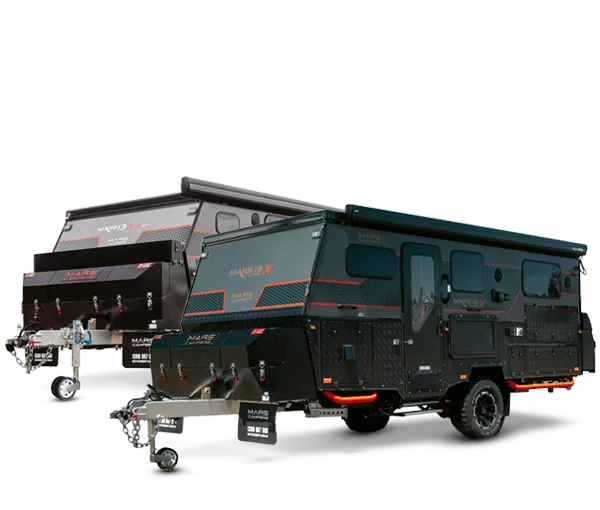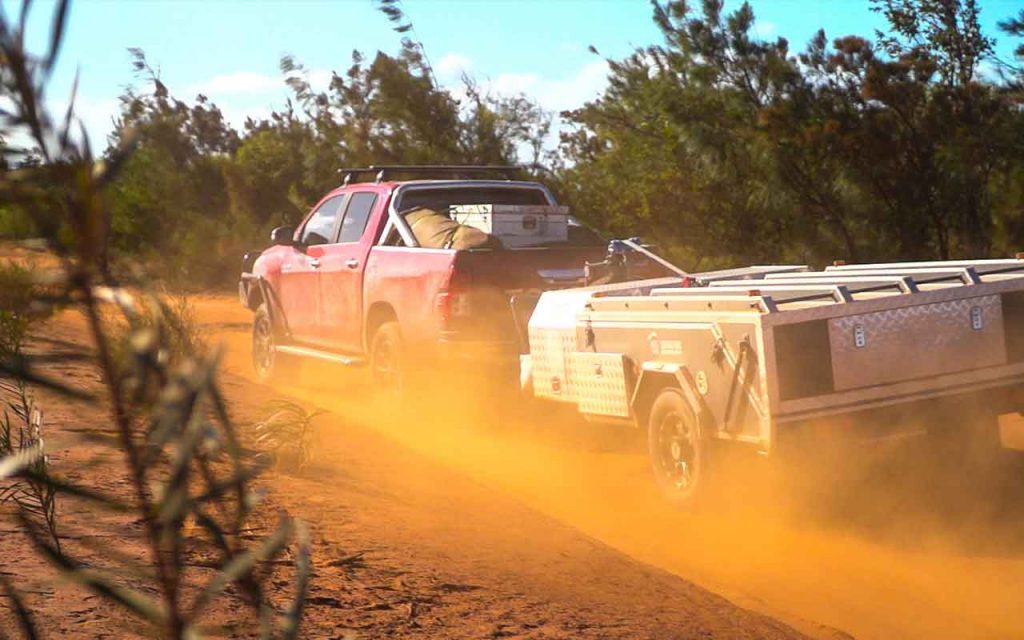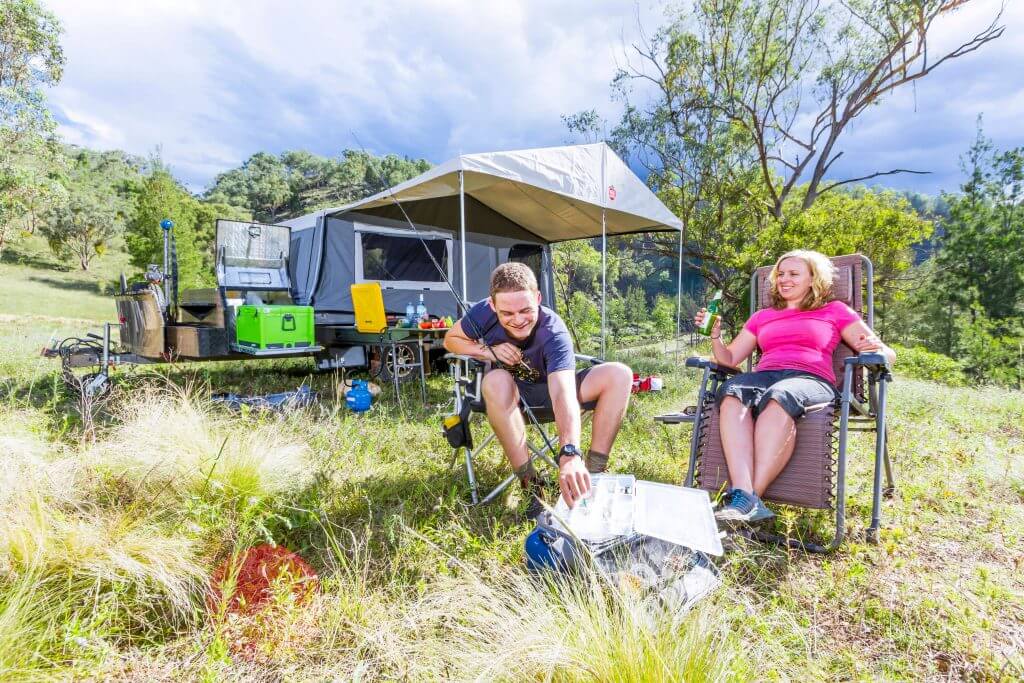- Our Range
- Off-road Caravans
- Hybrid Caravans
- Low Profile Caravans
- Camper Trailers
- For Couples
- For Families (Bunks)
- NEW MK II Range
Off-road Hard Top Caravans
NEW4 Berth
Mars 15 Elite HR
15 ft. Family Off Road Hard Top Caravan
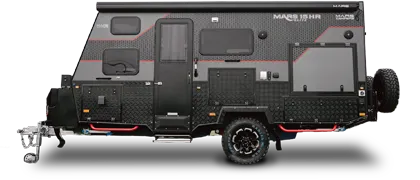
From $258/per week ($69,000)
NEW2 Berth
Mars 15 Premium HR
15 ft. Couples Off Road Hard Top Caravan
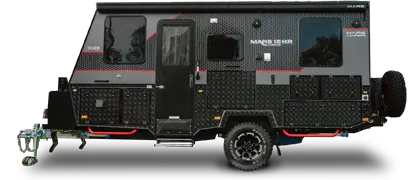
From $258/per week ($69,000)
2 Berth
Mars 20 Premium
20 ft. Couples Off Road Caravan
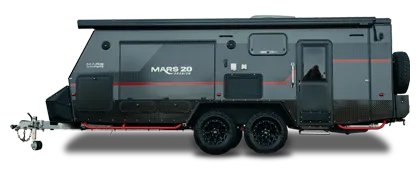
From $295/per week ($79,000)
2 Berth
Jupiter 17HR
17 ft. Luxury Off Road Caravan
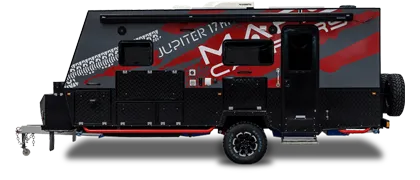
From $280/per week ($75,000)
Hybrid Caravans
4 Berth
Mars 15 Elite MK II - LD
15 ft. Low Profile Pop Top Hybrid Caravan for Families
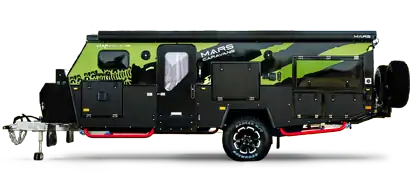
From $232/per week ($62,000)
NEWNEW2 Berth
Mars 15X Twin Bed
15 ft. Luxury Twin Bed Off Road Singles Caravan
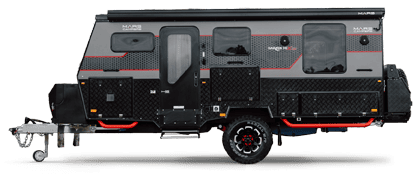
From $254/per week ($68,000)
NEW2 Berth
Mars 15 Premium S
15 ft. Island Bed Off Road Caravan
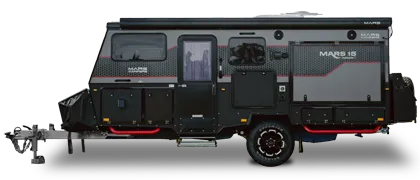
From $235/per week ($63,000)
2 Berth
Mars 15X Platinum
15 ft. Pop Top Hybrid Caravan for Couples
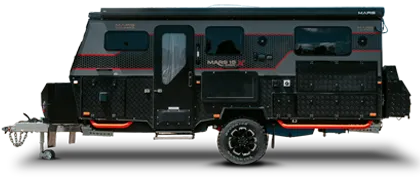
From $243/per week ($65,000)
NEWNEW5 Berth
Mars 15 Elite Triple Bunk
15 ft. Off Road Family Pop Top Hybrid Caravan
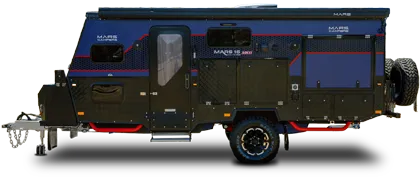
From $245/per week ($66,000)
4 Berth
Mars 15 Elite MK II
15 ft. Family Pop Top Hybrid Caravan
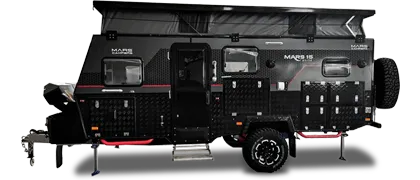
From $232/per week ($62,000)
2 Berth
Mars 15 Premium MK II
15 ft. Couples Pop Top Hybrid Caravan
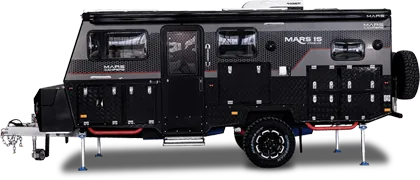
From $232/per week ($62,000)
Low Profile Hybrid Caravans
4 Berth
Mars 15 Elite MK II - LD
15 ft. Low Profile Pop Top Hybrid Caravan for Families

From $232/per week ($62,000)
NEW2 Berth
Mars 13X MK II - LD
13 ft. Low Profile Pop Top Hybrid Caravan for Couples
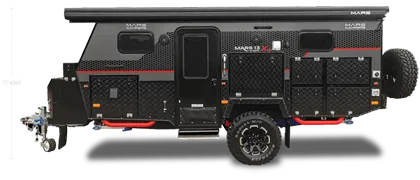
From $210/per week ($56,000)
4 Berth
Mars 15 Premium MK II - LD
15 ft. Low Profile Family Pop Top Hybrid Caravan
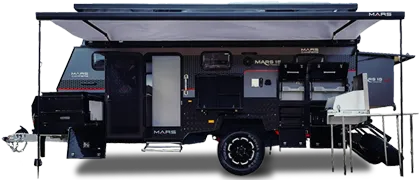
From $232/per week ($62,000)
4 Berth
Ranger X Family MK II
Low Profile Hybrid Family Caravan
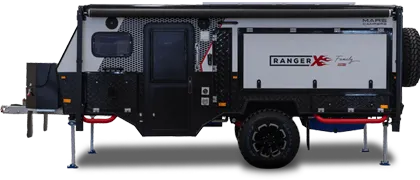
From $206/per week ($55,000)
Couples Off Road Caravans
NEW2 Berth
Mars 11S
11 ft. Off Road Couples Caravan
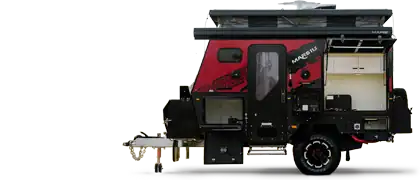
From $184/per week ($49,000)
NEW2 Berth
Mars 15X Twin Bed
15 ft. Luxury Twin Bed Off Road Caravan

From $254/per week ($68,000)
NEW2 Berth
Mars 15 Premium HR
15 ft. Couples Off Road Hard Top Caravan

From $258/per week ($69,000)
NEW2 Berth
Mars 15 Premium S
15 ft. Island Bed Off Road Caravan

From $235/per week ($63,000)
2 Berth
Jupiter X
15ft. Luxury Pop Top Hybrid Caravan for Couples
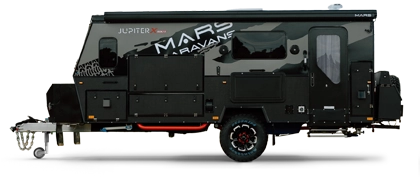
From $258/per week ($69,000)
2 Berth
Jupiter 17HR
17 ft. Couples Off Road Caravan

From $280/per week ($75,000)
2 Berth
Mars 15 Premium MK II
15 ft. Couples Pop Top Hybrid Caravan

From $232/per week ($62,000)
2 Berth
Mars 20 Premium
20 ft. Couples Pop Top Hybrid Caravan

From $295/per week ($79,000)
Family Off Road Caravans
4 Berth
Mars 15 Elite MK II - LD
15 ft. Low Profile Pop Top Hybrid Caravan for Families

From $232/per week ($62,000)
NEWNEW5 Berth
Mars 15 Elite Triple Bunk
15 ft. Off Road Family Pop Top Hybrid Caravan

From $245/per week ($66,000)
NEW4 Berth
Mars 15 Elite HR
15 ft. Family Off Road Hard Top Caravan

From $258/per week ($69,000)
4 Berth
Mars 15 Elite MK II
15 ft. Family Pop Top Hybrid Caravan

From $232/per week ($62,000)
4 Berth
Mars 16X Family
16 ft. Family Pop Top Hybrid Caravan
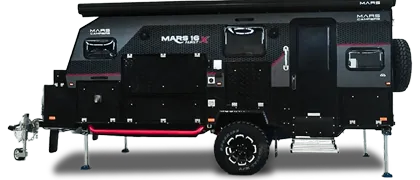
From $258/per week ($69,000)
5 Berth
Mars 16X Family Max
16 ft. Family Pop Top Hybrid Caravan with 3 Bunks
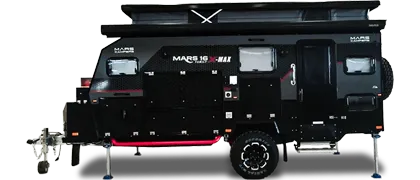
From $258/per week ($69,000)
4 Berth
Ranger X Family MK II
Hybrid Family Caravan

From $206/per week ($55,000)
4 Berth
Ranger X Deluxe MK II
Hybrid Caravan
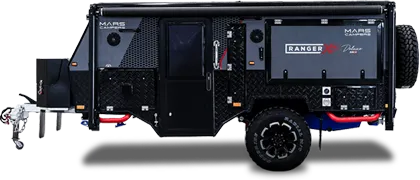
From $169/per week ($45,000)
Mars Campers MKII Range
NEW4 Berth
Mars 15 Elite HR
15 ft. Family Off Road Hard Top Caravan

From $258/per week ($69,000)
NEW2 Berth
Mars 15 Premium HR
15 ft. Ciuples Off Road Hard Top Caravan

From $258/per week ($69,000)
4 Berth
Mars 15 Elite MK II
15 ft. Family Pop Top Hybrid Caravan

From $232/per week ($62,000)
4 Berth
Mars 15 Premium MK II
15 ft. Couples Pop Top Hybrid Caravan

From $232/per week ($62,000)
4 Berth
Mars 15 Premium MKII Low Down
15 ft. Family Pop Top Hybrid Caravan

From $232/per week ($62,000)
2 Berth
Mars 13X MK II
13 ft. Pop Top Hybrid Caravan for Couples
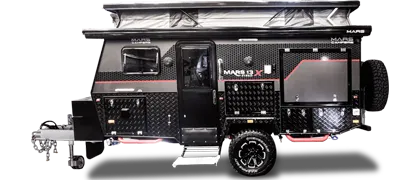
From $210/per week ($56,000)
4 Berth
Ranger X Family MKII
Hybrid Family Caravan

From $206/per week ($55,000)
4 Berth
Ranger X Deluxe MKII
Hybrid Caravan

From $169/per week ($45,000)
- Clearance NEW
- Showrooms
- Help & Resources
- About Us
- Contact
Visit a Showroom
Reach out to us
